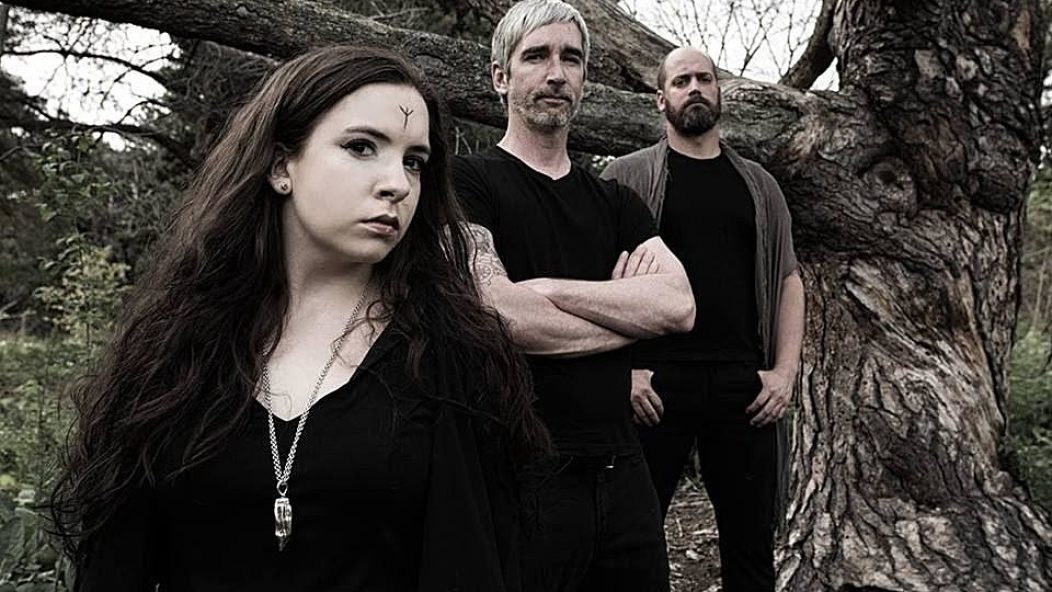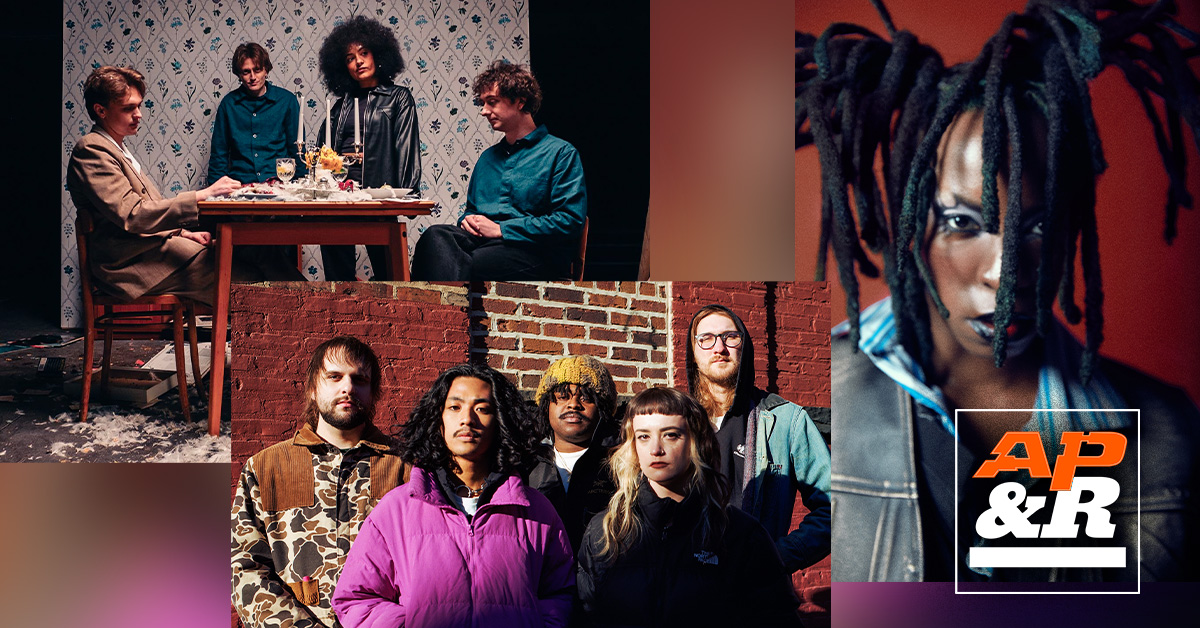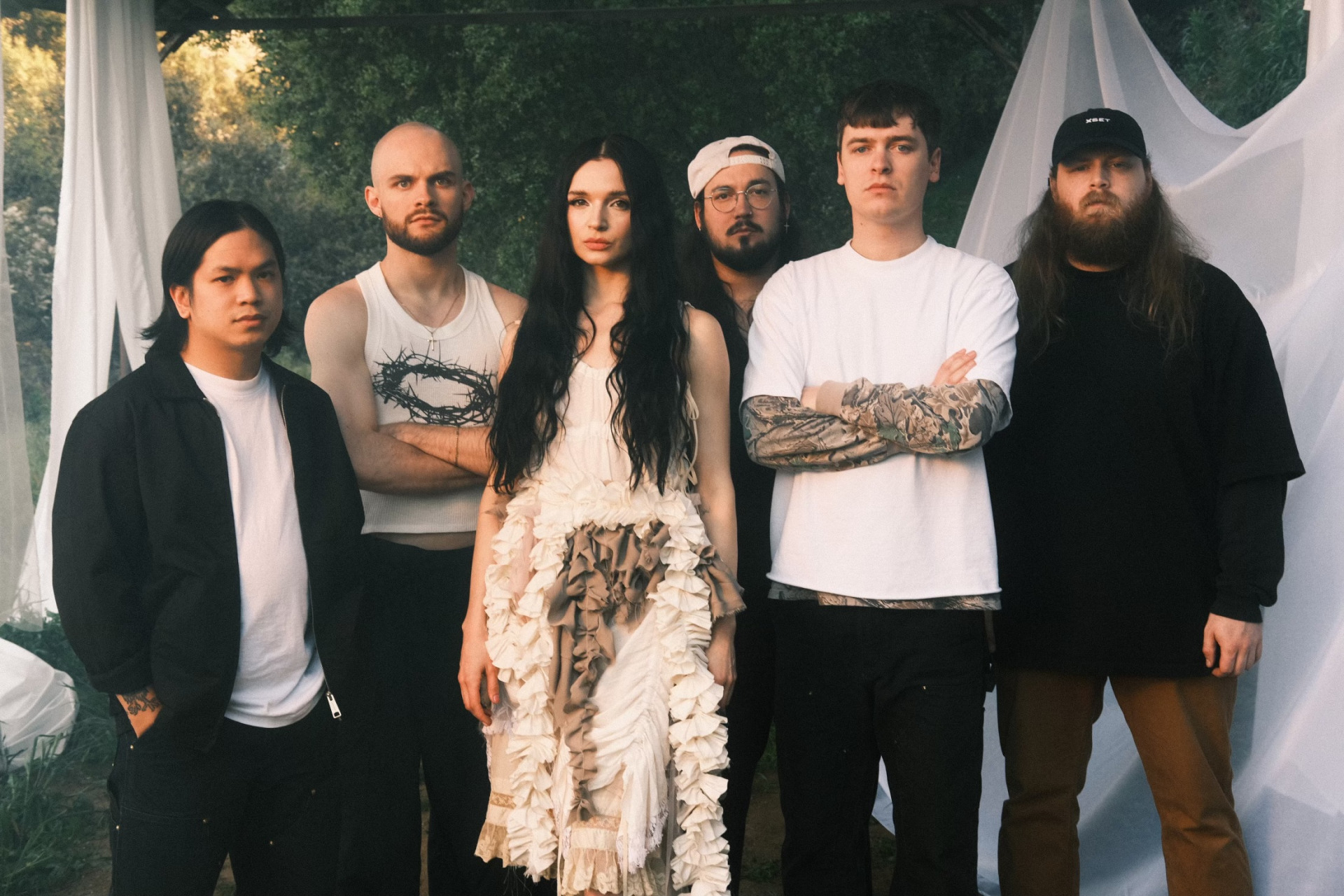
Interview: Völur Bassist Lucas Gadke

…
Through a unique blend of drums, violin, and an oscillating electric/upright bass, Völur provides a big and bold interpretation of doom metal from behind their hooded cloaks. Hailing from seemingly unlikely Toronto, the trio forgoes fetishizing of Norse myth in favor of taking general musical inspiration from their name’s clairvoyant character. An omnivore of mythology more broadly, bassist Lucas Gadke has become adept at translating his vision of futuristic doom by meditating on our universal commonalities with the past. With the antiquity of string instruments in tow, he plans on taking the show on the road in late October, with the first U.S. Prophecy Fest in Brooklyn serving as a major stop. Already veterans of Prophecy Fest Germany, Völur will be joining the ranks of Alcest, Eye of Nix, and many more. To learn more about what we can expect to see on stage and the story of how they got there, Gadke takes a time out from playing with his New Orleans-style jazz band to share his thoughts.
…
We’re stoked that Völur will be playing Prophecy Fest this November. Have you guys gotten to tour much or have you been playing mostly local shows?
We did a run through the U.S. earlier this year in March and we teamed up with another Prophecy band called 1476. We went down south to Texas and then we were going to go back up through the Midwest. Unfortunately, halfway through the tour, our violinist, Laura, and I were leaning on a balcony at a place we had rented for the night in Lafayette and it gave way. I ended up falling 10 feet and breaking three of my ribs. We ended up playing one more show but deciding it wasn’t really possible to do a full tour on three broken ribs, so we went home. This upcoming tour is kind of a redemption for some of the places we weren’t able to play.
I’m sorry to hear about the injury, although that does sound like something that would happen in Louisiana. [Editor’s Note: Jenna used to live there.]
The funny thing is we were driving down the highway and I was remarking ‘god, there are so many signs for personal injury lawyers around here.’ I think I found out why.
So Völur has a bit of an eclectic lineup in terms of its combination of metal and orchestral instrumentation. Is it something that happened coincidentally in that you all knew each other and those were all instruments you guys happened to play, or is it something that you actively sought out?
What we play in Völur are just our main instruments. Laura and I actually met in jazz school in Toronto. We became friends a little bit later when we started doing work for singer/songwriters in the folk world. There was one particular singer/songwriter who I won’t name who take us through some strange trips through northern Ontario. In the car, Laura and I started bonding over our love of heavy music, so we started playing the heaviest things we could to tick off this old folky we were driving around with. That kind of turned into coming up with ideas when we had down time and imagining what [Völur] would sound like. I’d be playing the double bass and she’d be playing the violin and we improvised counterpoint pieces that we would get some creepy sounds out of.
It really happened organically. When we decided to start the band, an interesting part of writing was being conscientious of who was playing what and in what range because you don’t have the guitar, which is the perfect instrument for heavy metal. It fills the sound out and you get to do solos and stuff, so if you take that away, you have to be a bit more thorough with how you arrange things. What started as coincidental became intentional as the project went on.
When your style of instrumentation comes together, it definitely evokes a strong other-worldly vibe. When you’re playing live or even in the studio, where does your mind go?
I think the real trick is to actually stay grounded and not float off and try to be in another plane. When we’re playing, the best performances are kind of right there in the moment of the music. If you’re playing a really loud heavy part, you’re very washed over by the sound, but at the same time you’re very conscious of what you’re doing and listening very intently. Through that you reach an other-worldliness. It involves intense concentration.
…
…
What was your journey like with learning the double bass?
I started playing music at 12 or 13, like a lot of kids. My parents made me take piano lessons when I was younger and then I started to learn how to play the guitar and the bass. Initially I was more interested in learning folk music and things like that. I had two older brothers who were into all sorts of music, so for me the world was kind of an open book – you could listen to whatever and enjoy whatever you want. Slowly, well, I don’t know how slow it was, but I started getting into stranger things like Avant Garde Classical music and weird heavy metal. When I decided as a teenager that I was going to be a professional musician and decided to go to school for it, I bumped it up to this jazz school ethos, which is very concentrated in bebop and learning these kinds of American standard songs and the jazz repertoire. I think some people would get kind of turned after a while, but I think it teaches you some discipline. You get freedom, but it’s sort of this focused, intentional freedom.
Cut to the thematic end of things — how did your interest in mythology develop?
My interest started when my dad brought me up to read Tolkien. I think that’s a common thing for a lot of people who get into mythology. They start reading The Hobbit and then later on The Lord of the Rings, which is quite accessible. If you go back and read about its process you start reading about the Norse myths and things like that. So, I started checking those out. When I found the Icelandic sagas, I was completely captivated. I read as many as I could get my hands on. That’s kind of where my interest was drawn — stories that are familiar, yet completely unfamiliar at the same time. It’s 1,000 years ago and there are themes and beings you can recognize, but there are also strange and magical elements.
At the heart of it, [myth] is just people living out their lives. Ancient literature can tend to focus on kings or people you can’t really identify with, but if you’re just reading about a farmer who’s trying to live his life the best he can, that really resonates – but there also might be a witch who puts a curse on him. I found it to be endlessly fascinating. That’s what really drew me in. The picture of the world is clear, but it’s also through a kind of haze. You can put your own ideas in it and filter it through your own influences, so there’s a lot of imagination you can use to fill incomplete pictures, which is where the music element comes in. The music that I play is what I feel when I read these kinds of old legends.
Who is the character of the Völur?
The word völur means a group of women — usually witches –who can see into the future. It’s a reference also to fate. It’s a reminder that with music, there’s almost this trance-inducing dance that allows you to see the future. The music itself is a strange thing that plays with time and cause and effect. That’s kind of how I see it — a trance, but also the notion that music is a temporal art form that can be done, re-done, and changed a million times. Art gets written down and changes with time, and the future that can be seen with it is different. I might be getting a little too esoteric…
What’s the process of bringing this experience to life? Is it ever difficult to translate, especially when you might be working with venues who don’t necessarily know how to mix more orchestral performances, or has it been fairly seamless?
I think at the beginning it was very difficult playing local metal shows. Sometimes we’d play with grindcore bands, which I love. I love playing those shows. My desire to incorporate more dynamic shifts in the music — like getting really soft and then really loud — would sometimes be squashed be people cheering or screaming and all that kind of stuff. I think if you can try to bring people in at first, musically, you can set the tone that this is going to be a listening experience. You don’t want to start with something big and thrashy; you want to start with something hypnotic and ease in. At shows where we’re not playing as well as I think that we could, people tend to speak when the volume gets quiet and that throws it off. But if we’re in fine form and playing hard then you can really draw people in. It becomes a really nice experience when people are actively listening for a cue for applause as opposed to just kind of applauding whenever the volume goes down.
…
Find Völur’s upcoming tour dates here.
…
Become an Invisible Oranges patron.
…










